13 Names to Know in 2013

The smarter way to stay on top of broadcasting and cable industry. Sign up below
You are now subscribed
Your newsletter sign-up was successful
It is a truism of the television industry, more so than in most other lines of work, that there are certain names you just need to know. For this year's edition of our annual list, we have chosen 13 names (in honor of lucky 2013) that run the entire gamut of the business, from programming to stations to technology to news to cable systems.
This baker's dozen also redefines what's in a name to include brands, technologies and companies, not just individual people. Because who wants to be that one person at lunch who, when told they have got to check out Zeebox, responds, "Uh, is that French?"
Let's face it: It's a swirling, unpredictable, rapidly evolving marketplace out there, especially when it comes to the pace of innovation. What worked two months ago suddenly can go out the window—an uneasy feeling sometimes, but also a bracing and exciting one. Who would have thought even five years ago that the prime movers in television would be obsessing over Klout scores and Vine videos and the ratings for viewers in an entire week, not just one time slot? Traditional strengths still matter, of course—great storytelling, branding savvy, strategic execution, and so on—but a lot of success depends on being nimble and opportunistic and willing to adapt.
While several up-and-comers made our cut, the purpose of our roster is also to focus attention on established names in important new roles. In those cases, their names may be very familiar but their titles and mandates have dramatically shifted (or will soon), which is important to take full stock of as the year unfolds.
February is too late to offer Happy New Year greetings, but in presenting this list we can nevertheless offer a wish that we all enjoy plenty of upside surprises as 2013 gets swinging.
Al Jazeera America
"Al Gore-zeera," some quipped, when the news broke that the former vice president was selling Current TV to Al Jazeera, which plans to convert the network to Al Jazeera America sometime this summer, spokesman Ashok Sinha says.
But with funding from the State of Qatar-Al Jazeera is a private nonprofit-and armed with a brand that has been ranked among the tops worldwide in name recognition, Al Jazeera America could become a force to be reckoned with.
At the least it will test the market for yet another advertising- and sub fee-supported 24-hour news net, and will provide jobs for more than a hundred journalists if its website's job listings for New York and Washington are any indication.
Al Jazeera English has garnered DuPont, Polk and Columbia Journalism Review awards, and praise from Secretary of State Hillary Clinton. But the channel has failed to gain a foothold in the U.S., confined to a few agreements on a handful of cable and satellite operators. Al Jazeera America, on the other hand, has bought into carriage to about 40 million subs. But whether it can hold on to that figure, or grow it, remains a question mark. Time Warner Cable, for example, dropped the channel.
"Al Jazeera America will offer the same fair and balanced award-winning journalism that it offers in other places around the world," says Sinha.
—John Eggerton
↑ Back to top
Tim Busch
Executive VP and Co-Chief Operating Officer, Nexstar Broadcast Group
Nexstar Broadcast Group has made clear its plans to be among the largest station groups in the nation, which means Tim Busch, the company's high-energy executive VP and co-COO, has an even more significant role in 2013 and beyond. Recent acquisitions from the likes of Newport TV, Granite and Smith Media have added stations in Burlington, Memphis, Syracuse and the Tri-Cities (Tenn.-Va.) to his direct oversight, while three other New York State acquisitions also slid over to his general purview.
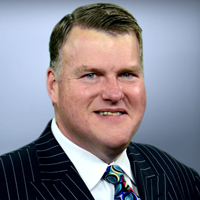
Busch has been on the fast track at Nexstar ever since he was named WROC Rochester general manager in 2000. A corporate senior VP role followed two years later, and the co-COO title (Brian Jones is Busch's counterpart COO) came in 2008. A year later, Busch was named chairman of the CBS affiliates board-a critical position in the broadcast community.
With Perry Sook, Nexstar chairman and CEO, swinging the deals and crafting his beloved duopolies, virtual and otherwise, it is on Busch to keep the stations in key markets such as New York, Pennsylvania and Florida humming. A big job is getting a lot bigger.
—Michael Malone
↑ Back to top
Susanne Daniels
President of Programming, MTV
Like a hip new band or fashion trend, MTV's millennial audience outgrows the channel every few years, making the need to regularly refresh programming even greater. For that task, the Viacom-owned network last November tapped former Lifetime and WB Network executive Susanne Daniels, who previously developed generation-defining hits like Dawson's Creek and Buffy the Vampire Slayer.
The smarter way to stay on top of broadcasting and cable industry. Sign up below
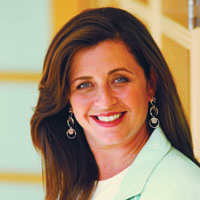
As with her last gig consulting for Oprah Winfrey' OWN, Daniels comes to MTV just as it needs a turnaround, having lost its flagship series Jersey Shore and seeing total viewership fall 24% in primetime in 2012. Viacom CEO Phillip Dauman has said tapping into generational themes, like millennials navigating relationships in Catfish, is a priority, as is a more balanced weekly schedule for audiences and advertisers, rather than the over-emphasis Jersey Shore placed on a single night.
Daniels has already accelerated the network's pilot process to get more original programs on the air. She poached Mina Lefevre from ABC Family to head scripted programming. And Daniels enters 2013 with a few building blocks under her belt. MTV recently renewed the headline-grabbing Buckwild for a second season, and summer's Teen Wolf and Awkward are strong players on which to launch new scripted hits, Daniels' forte.
—Andrea Morabito
↑ Back to top
Fox Sports 1
It's safe to say that 2013 will be somewhat of a makeover year for Fox in many areas. But perhaps its biggest change will come when it steps into the all-sports cable network ring.
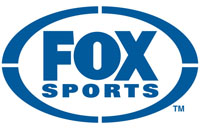
With Fox Sports 1, Fox will become the latest broadcaster to have an all-sports cable net, joining NBC and CBS, which have launched their own in recent years (ABC has corporate sibling ESPN). Recently proclaimed as "the world's worst-kept secret" by News Corp. COO Chase Carey, Fox's incipient entry could have the longtime category king, ESPN, watching its throne.
This is more possible in sports than in the financial news arena, where a launch from scratch, Fox Business has been on a long path to ratings traction. Fox Sports 1 could more quickly vault into contention as a serious ESPN rival because it has big-ticket rights-the biggest is Major League Baseball, which Fox can begin airing on FS1 in 2014.
Fox is also reportedly close to landing rights to the NCAA's "Catholic 7" league formed out of the seven Catholic schools that are leaving the Big East Conference (including the high-profile basketball programs of Georgetown and St. John's). Sources confirm published reports that Fox is talking with Regis Philbin to host a View-style sports show for the new network.
Fox Sports 1 will emerge out of racing channel Speed and is expected to launch in August. It will be joined by Fox Sports 2, a rebrand of Fuel TV, to give the company a double threat à la ESPN and ESPN 2.
—Tim Baysinger
↑ Back to top
Peter Liguori
Chief Executive Officer, Tribune Co.
Shortly after Peter Liguori was officially named Tribune CEO in January, he headed to the NATPE confab in Miami, where producers and syndicators reported he was active and eager to work with the best in the business to strengthen Tribune's TV assets. Then earlier this month, Liguori made his first big hire, bringing in NBCUniversal veteran Larry Wert to head local broadcasting. Tribune owns 23 stations and cable network WGN America, and the new CEO certainly has the expertise to bring interesting original programming to that network.
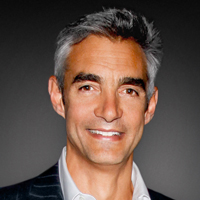
Liguori brings a strong background in media management. From 1998-2005, he built News Corp.'s FX into a basic cable player with ground-breaking original series such as Nip/Tuck and The Shield. From 2005-09, Liguori was chairman of Fox Broadcasting, developing such shows as Glee and Fringe, and in 2008 he led the network to its first season as TV's most-watched network.
From 2010-11, Liguori served as Discovery's chief operating officer, overseeing the launch of the Oprah Winfrey Network (OWN) and Discovery's joint kids venture with Hasbro, The Hub. Most recently, he has been a consultant with The Carlyle Group in New York.
Liguori got off to an upbeat start, telling his new staff in a letter that Tribune still has "unparalleled media assets, iconic brands in major markets and very talented, creative employees."
While the Tribune of today looks much different than the Tribune of 2000-having shed most of its radio business, the Chicago Cubs, Newsday newspaper and other assets-Liguori still has plenty to work with. Besides the TV stations and WGN America, Tribune owns eight newspapers (some of which it's expected to sell), including the Los Angeles Times and Chicago Tribune; and WGN Radio in Chicago.
—Paige Albiniak
↑ Back to top
Ultra HD (A.K.A. 4K) and OLED
Many broadcasters are heaving a sigh of relief that they have finally completed their hi-def upgrades. But already an array of new video formats and screen technologies are coming to market that will demand attention- most notably the launch of the 4K/Ultra HD video and OLED (organic light-emitting diode) screens.
Both will improve the TV viewing experience, which is good news for the future of the TV industry. But Ultra HD and OLED should not be confused. Ultra HD (also known as 4K) is a video format that offers about four times the resolution or pixels of the best HD pictures. In contrast, OLED is a type of screen technology that makes it possible to produce much brighter and thinner displays than the LED, LCD or plasma screens most TV viewers currently own. Like other screen technologies, OLED can be used in both Ultra HD or HD sets.
While it will be many years before these new technologies make it into most homes, they are already having an impact on broadcast infrastructure that engineers and executives need to monitor (so to speak).
In the short run, the high-quality OLED screens are already being used to monitor video signals. Higher-resolution 4K cameras are increasingly used in film, big-budget TV dramas and sports; CBS used them during this month's Super Bowl, and follow-on live sports plans are being set. Higher-resolution screens make glasses-free 3D seem a more realistic proposition. Longer-term, however, high-resolution 4K files and feeds will require significant investments in new equipment and facilities.
—George Winslow
↑ Back to top
Amanda Richman
President for Investment and Activation, Starcom
Media agencies have been giving executives with digital backgrounds more and more responsibilities as consumers increasingly choose nontraditional ways of viewing content, especially video content.

Case in point: Amanda Richman, who at the end of last year was named president for investment and activation at Starcom. Richman will direct upfront TV advertising negotiations for Starcom clients including Bank of America, Kellogg's, Mars/Wrigley and Samsung. Previously, she was president of digital for sister SMG agency MediaVest.
The configuration under Richman could affect how much money gets spent on traditional advertising versus digital video.
Richman says Starcom will focus on the consumer experience. "We're now at the post-digital age, where it's less about the media channels and more about the people and the platforms and being able to fluidly move dollars and follow the consumer where they're consuming media," she says. "That behavior just continues to evolve year over year."
The TV market is evolving as well. "I think the dynamics have really changed in the last few years toward being an always-on marketplace. There's still value in a futures marketplace," Richman says.
As for her own behavior, Richman confesses she watches too much television on a variety of devices. Favorites include Mad Men, Downton Abbey, Breaking Bad and The Wire.
—Jon Lafayette
↑ Back to top
Adam Silver
Deputy Commissioner/COO, NBA
The NBA is the elite basketball playground of a few hundred immensely talented men wearing oversized shoes. This year, highly respected NBA No. 2 executive Adam Silver is going through his final pregame preparations to lace up a pair of the biggest kicks in league history-the size XXXLs of legendary commissioner David Stern.
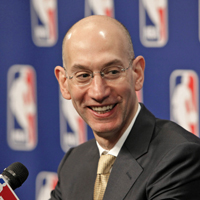
Stern last fall tapped his longtime protege Silver to succeed him next Feb. 1, 30 years after Stern took the helm and masterminded the NBA's explosive expansion into a $5 billion global entertainment juggernaut. Silver, 50, has spent 20 years as a valuable point man on Stern's team, running NBA Entertainment (where Silver led the highly successful launches of NBA TV and NBA.com), forging a partnership with Turner Broadcasting to jointly manage the league's growing digital assets, as well as overseeing merchandising, sponsorship and television efforts around the world.
Silver's negotiating talent and congenial style provided a huge assist in the season-saving settlement of the NBA's 2011 labor dispute with its players union (a deal that ended up tilting very favorably toward management). Silver also played a key role in putting together the NBA's last two national TV deals, nurturing and extending relationships with partner networks established years earlier by his dynamic mentor, Stern.
High on Silver's agenda for this year: Starting up negotiations on new TV deals to replace the eight-year, $930-million-per-season pacts with Turner and ESPN/ABC that expire in 2016, and ramping up new digital initiatives to serve more NBA action, information and star power to fans anytime, anywhere. Will Fox and/or NBC's new national sports networks launch a full-court press to join the NBA's TV team? For the man who is set to step into the commish's XXXLs, it's time for tip-off.
—Brian Moran
↑ Back to top
Syncbak
As broadcasters look to get more content onto smartphones and tablets-the two fastest-growing areas of video consumption-Syncbak has emerged as a must-watch mobile player.
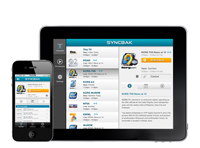
Unlike mobile DTV broadcasts that can't be viewed on the average smartphone without an added accessory, Syncbak's technology allows broadcasters to stream their live broadcasts over existing cellular networks. It also addresses some important copyright issues by limiting access to devices located inside a station's designated market area.
Currently 125 stations have deployed or are installing the Syncbak service to stream live content to Internet-connected mobile devices; another 100-plus channels are waiting for equipment, reports company founder and CEO Jack Perry. Both the National Association of Broadcasters and the Consumer Electronics Association were so bullish on the technology that they made equity investments.
The user base is currently small (around 80,000), but viewing levels are high. Syncbak is about to embed its technology in existing station apps, which will dramatically expand its reach. Content is also growing, with the average station currently delivering seven or eight hours a day of both local news and syndicated fare.
Two broadcast networks are also testing the idea. Perry believes the technology could eventually allow stations to act like small virtual MSOs, offering a bundle of ad and subscription channels. "That is one of the things we are most excited about," he says.
—George Winslow
↑ Back to top
Kevin Tsujihara
CEO, Warner Bros. Entertainment
His new title technically doesn't kick in until March 1, but Kevin Tsujihara has enjoyed a vastly elevated profile since Jan. 28. That was the day of Time Warner's announcement that the he had prevailed in a historic bake-off for the top studio job against TV head Bruce Rosenblum and film chief Jeff Robinov.
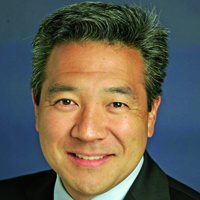
The "smart" money had been on Rosenblum, given the company's strong TV bent-and profits-over the past few years. But Tsujihara's experience in key areas-digital and piracy among them- along with his steady demeanor convinced uber-boss Jeff Bewkes he was the pick to lead the company forward. It's a big leap for an executive who, while used to high-level operations, had been able to focus on home video, digital distribution, video games, antipiracy and emerging technology operations. Now Tsujihara will add Hollywood's largest movie and TV operations.
It's way too early for him to talk a lot of strategy. In accepting the mantel, Tsujihara noted the arrival of "a pivotal moment in the histories of Hollywood and entertainment," adding, "the definition of television now includes viewing across a wide range of devices and services." The idea of Warner Bros. further expanding that definition is one of the tantalizing possibilities of the new Tsujihara Era dawning in Burbank.
—Dade Hayes
↑ Back to top
Keith Turner
President of Sales and Marketing, Univision
In leading sales and marketing for the country's biggest Spanish-language media company in the country's fastest-growing demographic, Keith Turner faces both a big opportunity and a big challenge.
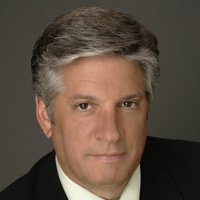
Turner and his team will work to lure traditional advertisers and marketers over to media's Latin side, proving to them that working with Univision in the growing U.S. Hispanic demo makes sense for their businesses. Success delivering and executing that message is important: Much of the job of growing Univision's already mammoth business falls under Turner's purview.
Turner oversees sales and marketing for all of Univision's media offerings, including Univision Network, UniMas, Univision Cable Networks, Univision Television Group, Univision Radio and Univision Interactive.
Turner certainly has the experience, having spent more than 20 years at NBC, where he also held the equivalent title of president of sales and marketing. From 2009-12, Turner served as the NFL's senior VP of media sales and sponsorship.
Turner was brought to Univision by another former NBC executive - Randy Falco, former president and chief operating officer of NBCUniversal Television Group. Falco joined Univision as president and CEO in 2011 after a two-and-a-half year stint as AOL's chairman and CEO.
—Paige Albiniak
↑ Back to top
Melinda Witmer
Executive VP, Chief Video and Content Officer, Time Warner Cable
Time Warner Cable has made headlines by dropping networks rather than paying for low-rated programming, and by bidding billions for Los Angeles sports rights to stabilize costs and cut out the middleman. These moves put Melinda Witmer on the front line of some of the industry's major economic battles.
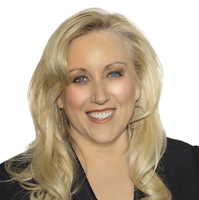
But the MSO's executive VP and chief video and content officer says her goals for 2013 are simple. Step 1: Make sure TWC delivers compelling video products with an attractive price-value equation for consumers; Step 2: Beat the competition at doing Step 1; and Step 3: Repeat Steps 1 and 2, over and over.
"To meet our goals, we need to stay focused on having the right product set at the right price," Witmer says. "To that end, we are more focused than ever on making sure that programming is performing for us, and we are going to make hard decisions about what to renew and not renew. At the same time, we are looking at new opportunities and believe it is important to keep the product fresh."
Witmer says TWC will continue rolling out its TWCTV application to more mobile devices and will ramp up its on-demand offerings. Witmer also expects to launch a TV Everywhere application, one step in her bid to "push the envelope to deliver compelling consumer experiences."
—Jon Lafayette
↑ Back to top
Zeebox
As the smartphone drew wandering eyes away from the television with its app explosion and social power, TV executives viewed it with both anxiety and anticipation. They hoped a second screen would also mean a second stream of revenue. Zeebox is aiming to quell industry fears and push the possibilities with its multifaceted eponymous app. It was founded in the U.K. and launched here across the pond, Spotify-style, last September with the backing of Comcast, NBCUniversal and HBO. Viacom signed on as a strategic partner a month later.
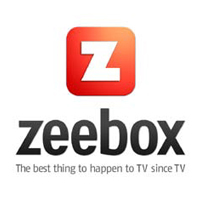
That financial backing gives Zeebox more clout than many rivals in an increasingly crowded sector, but Zeebox has design advantages as well. It is a TV guide-but it also provides content, culled from the Web and social networks as well as programmers and advertisers, related to the show the user is watching. And the app will make finding the show even simpler.
At CES last month, Zeebox announced it will integrate the Entourage automatic content recognition system from Gracenote, which powers iTunes' track listings and album covers. NBCU and American Express also struck a partnership to offer products appearing in NBCU shows for sale via Zeebox, so those inclined can literally shop while watching. That's just the latest reason viewers flipping channels will be encouraged to keep fiddling with their phones.
—Lindsay Rubino
↑ Back to top
